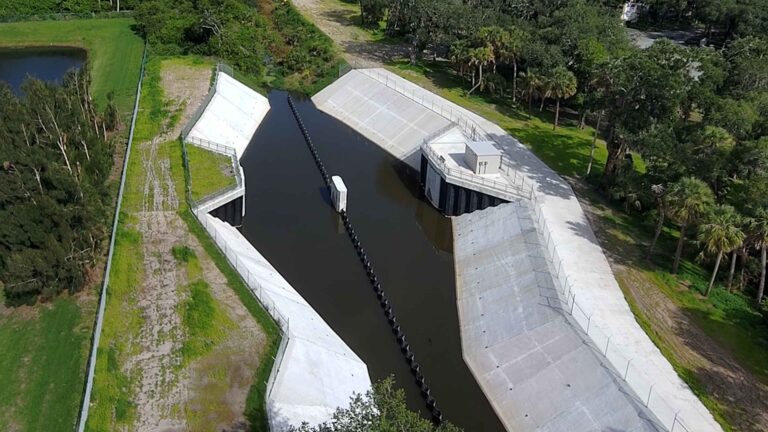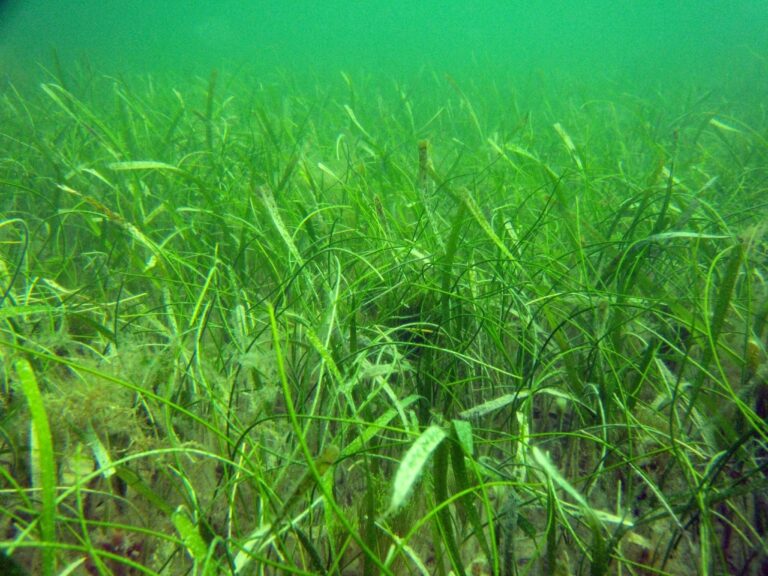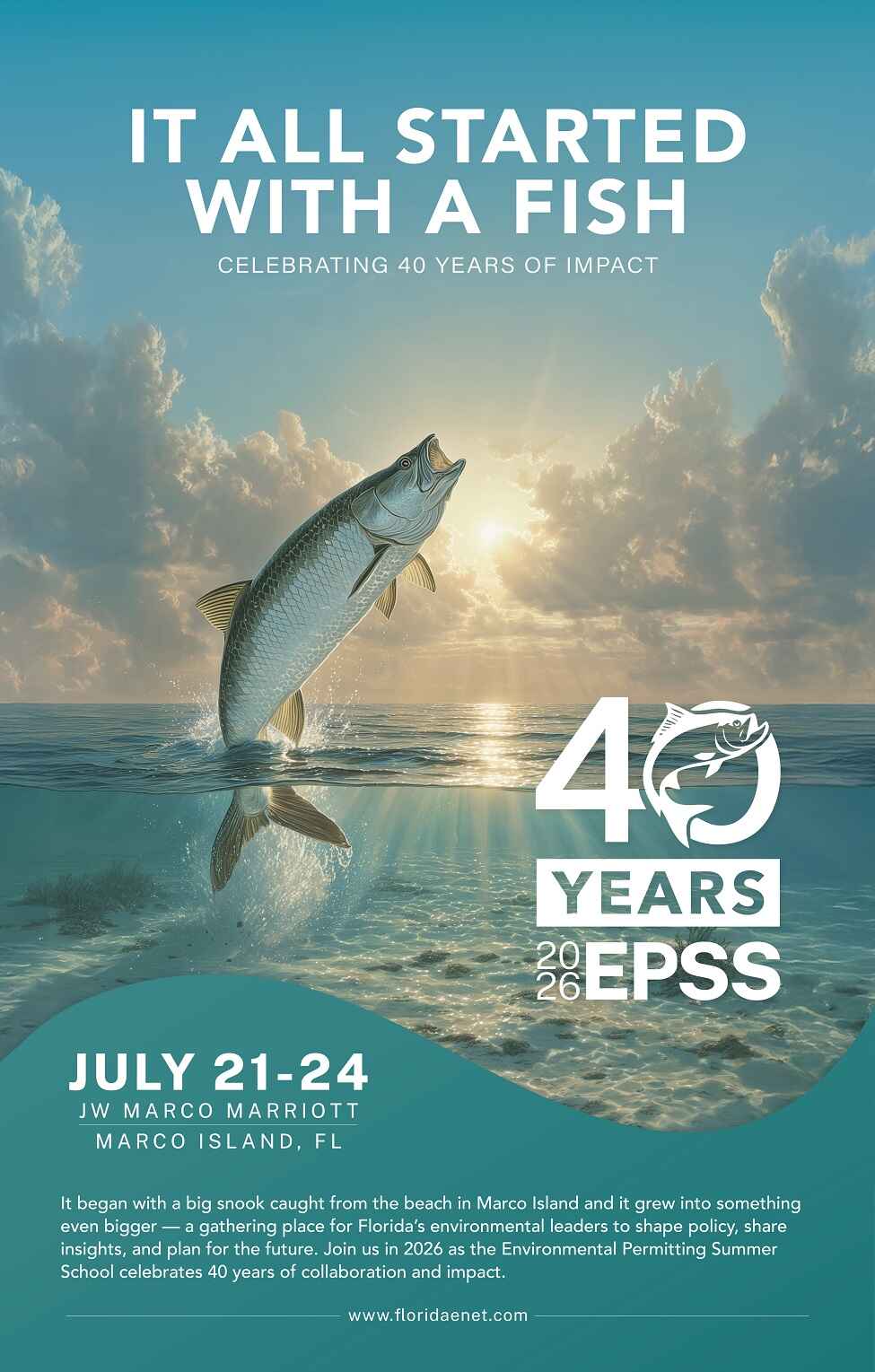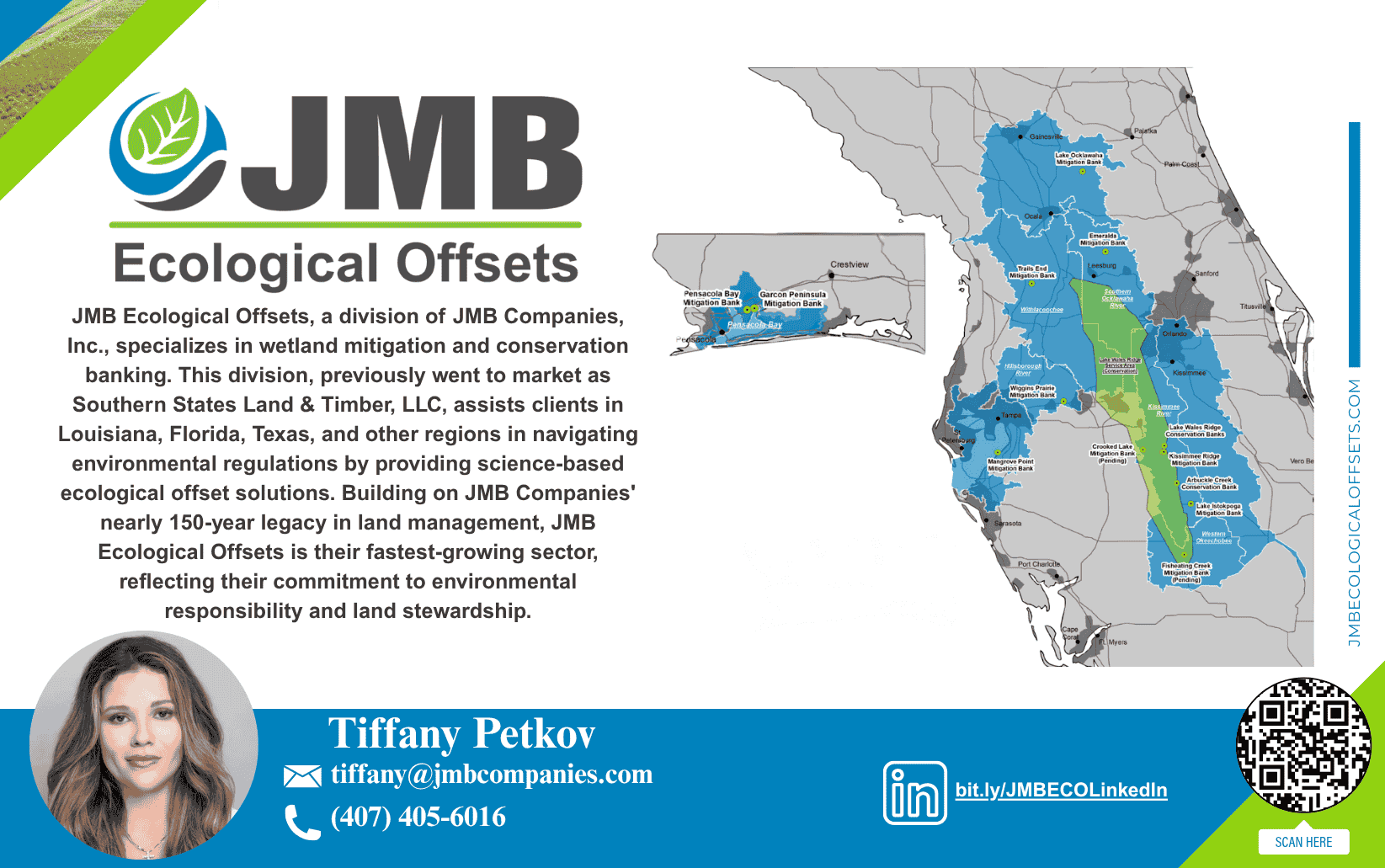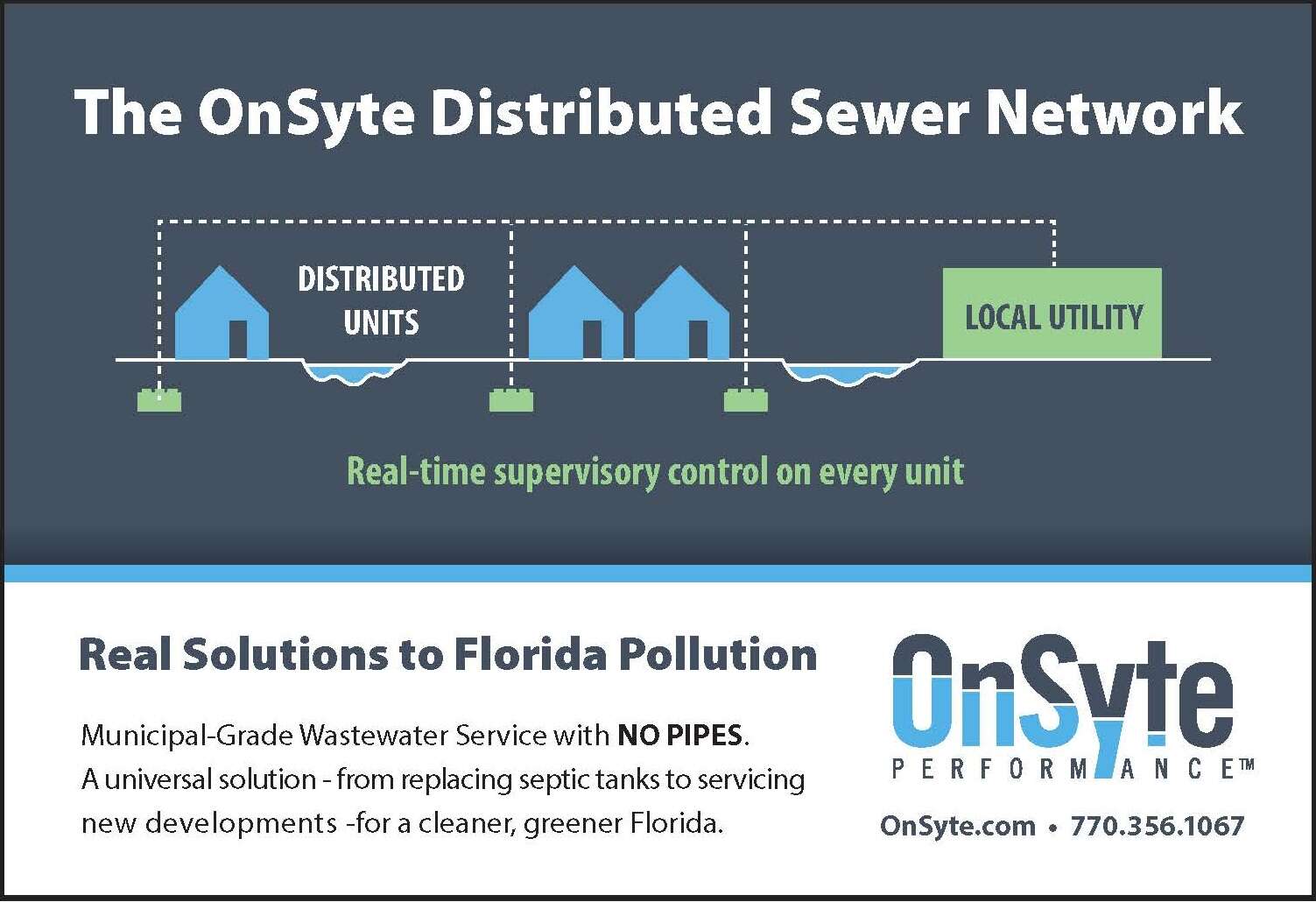
By NICOLA LIQUORI
Hidden for decades beneath the pine canopy of the Withlacoochee State Forest in Citrus County, the Etna Turpentine Camp stood as a silent witness to Florida’s industrial growth. What was once a thriving community built around the turpentine industry had faded into obscurity, until a modern infrastructure project unearthed its legacy. Today, thanks to the thoughtful collaboration led by the Florida Department of Transportation (FDOT) and its Turnpike Enterprise (Enterprise), Etna’s story is being preserved and shared with future generations as part of the Suncoast Parkway Extension project.
The Suncoast Parkway Extension, part of the Enterprise’s commitment to improving connectivity across the state, extends the Parkway from U.S. 98 to U.S. 19. As with many infrastructure projects, the planning process included detailed environmental and cultural resource assessments which revealed not only valuable land, but also a piece of Florida’s forgotten past.
The story of Etna is not just one of pine trees and distillation but of people and progress. As Florida moves forward with infrastructure improvements, FDOT ensures that its path forward respects and remembers the past.
A Window into Florida’s Industrial Roots
At the turn of the 20th century, the turpentine industry thrived across the southeastern United States, and Florida was at the heart of it. Derived from pine resin, turpentine played a vital role in the country’s economy through its use in shipbuilding, maintenance, and manufacturing. The Etna Turpentine Camp, operating from 1898 to 1926, was a bustling center for this once-booming trade.
Etna wasn’t just a camp; it was a community. More than 50 structures once dotted the landscape, including turpentine stills, a sawmill, blacksmith shop, cooperage for making barrels, company store, post office, and an eight-mile-long tram line.
The camp’s history provides a crucial insight into Florida’s industrial past, particularly the lives of those who contributed to the state’s early economic development. Yet, for many decades, this important historical site remained unknown to the public.
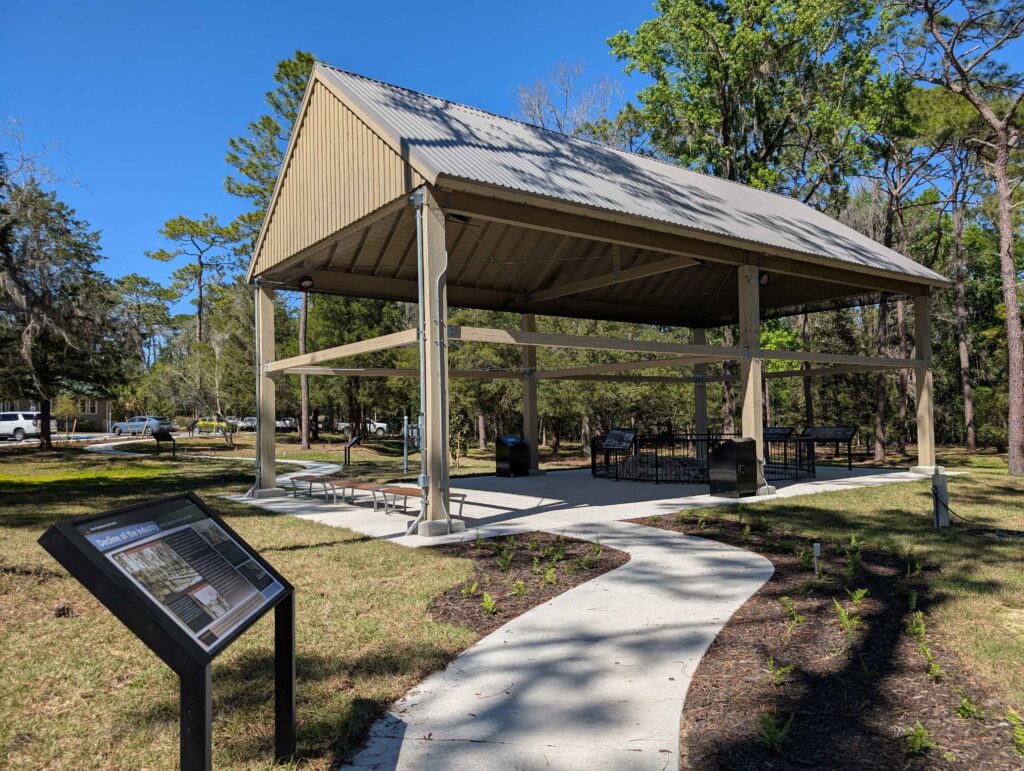
Rediscovery and National Recognition
The Etna site came back into the spotlight in 1993 during an archaeological survey for the Florida Gas Transmission Company. The archaeological findings indicated that the camp was not only a place of industry but also an area of rich cultural and historical significance. As interest grew, so did the site’s importance. In 2009, the Etna Turpentine Camp was formally listed on the National Register of Historic Places, solidifying the site’s cultural and historical value.
The rediscovery marked the beginning of a new chapter for Etna centered on preservation, education, and collaboration.
Preservation in Partnership
In 2004, the Enterprise initiated archaeological reviews in anticipation of the Suncoast Parkway Expansion, a critical infrastructure project aimed at improving mobility and safety in the region. Recognizing the proximity of the project to the Etna site, the Enterprise took proactive steps to ensure that development would not come at the cost of history.
In 2017, a Memorandum of Agreement (MOA) was established between Florida’s Turnpike Enterprise, the U.S. Fish and Wildlife Service, the Florida Forest Service, and the State Historic Preservation Officer. This agreement served as a blueprint for preservation efforts and laid the groundwork for a unique public exhibit. Under the MOA, the Enterprise committed to thoroughly documenting the site and salvaging key elements, including a firebox from one of the original turpentine stills.
This multi-agency collaboration is a shining example of how infrastructure growth and cultural stewardship can coexist. It underscores FDOT’s approach to not just connect communities with roads, but to connect them with history.
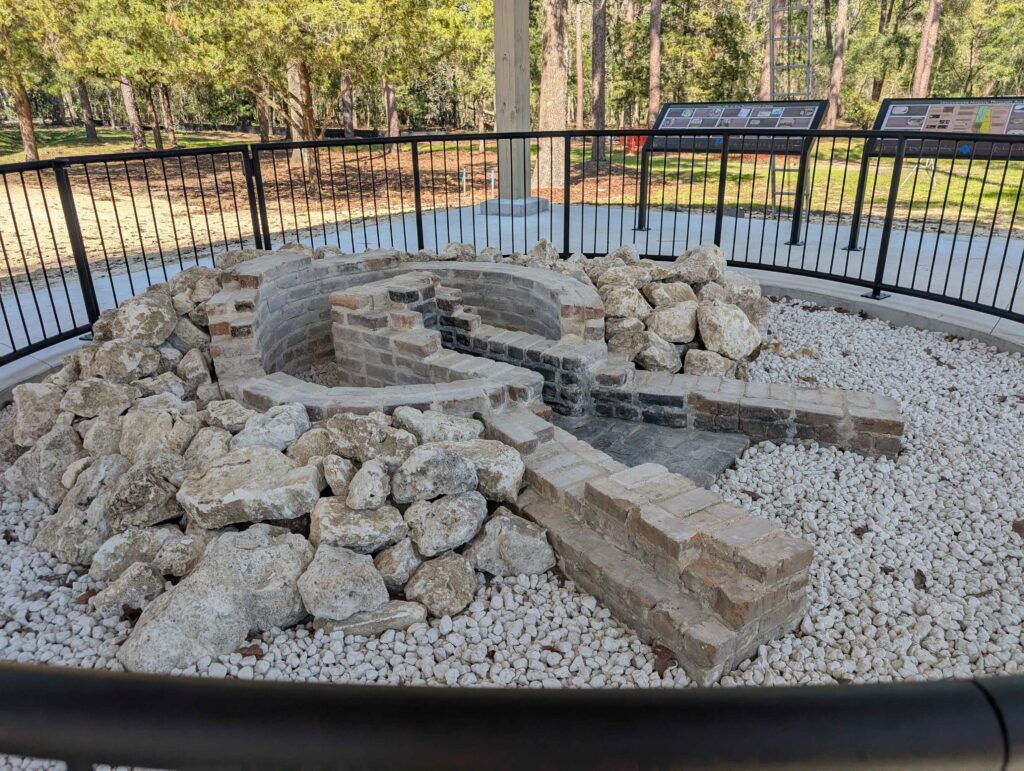
Bringing the History of Etna to Life
To honor the site’s heritage, the Enterprise partnered with the Florida Forest Service to develop an interpretive exhibit at the Withlacoochee State Forest Headquarters. Completed in early 2025, the two-story structure features the original turpentine still foundation and recreates the scale of an authentic still building, giving visitors a vivid sense of life at the camp.
More than just a visual attraction, the exhibit serves as a learning experience for visitors. Nine interpretive panels provide historical context, telling stories of the workers — many of whom endured difficult conditions — as well as the larger role the turpentine industry played in shaping Florida’s early economy.
This installation is complemented by a Florida Historic Marker at the nearby Oak Park North trailhead, just a short distance from the original Etna site. The marker invites hikers, cyclists, and visitors alike to pause and reflect on the past as they explore the surrounding natural landscape.
Stewarding Both History and Nature
While the focus of the project centers around cultural preservation, it’s part of a broader commitment by FDOT to protect Florida’s unique environmental resources. The Etna site sits within the Withlacoochee State Forest, one of Florida’s largest state forests and a critical habitat for native wildlife.
The Enterprise has taken great care throughout the Suncoast Parkway Expansion to minimize environmental impacts, implement wildlife crossings, and maintain the integrity of nearby ecosystems. In preserving the Etna site, the Enterprise has demonstrated how roadway development can align with both natural and historical resource stewardship.
A Legacy That Endures
The preservation of the Etna Turpentine Camp stands as a powerful reminder that progress does not have to mean erasing the past. Through foresight, collaboration, and a commitment to honoring the past, a once forgotten industrial settlement has been transformed into a touchstone for public education and cultural reflection.
Visitors to the exhibit and the Withlacoochee State Forest can now connect with a lesser-known chapter of Florida’s past—one that shaped communities, economies, and the landscape itself. The initiative ensures that future generations will not only read about the turpentine industry in textbooks but can see, feel, and experience it firsthand.
Nicola Liquori is Executive Director and Chief Executive Officer for Florida’s Turnpike Enterprise






